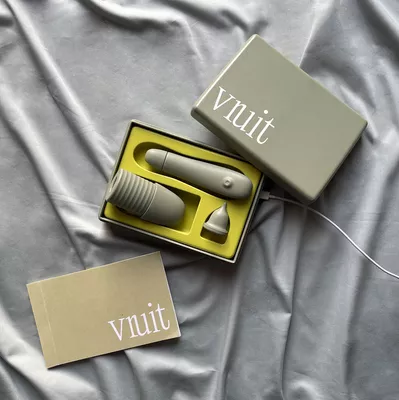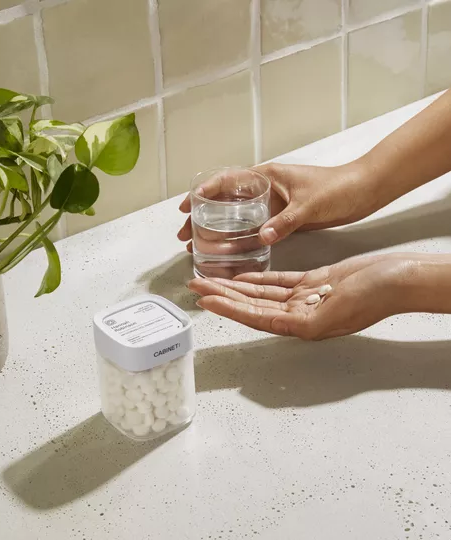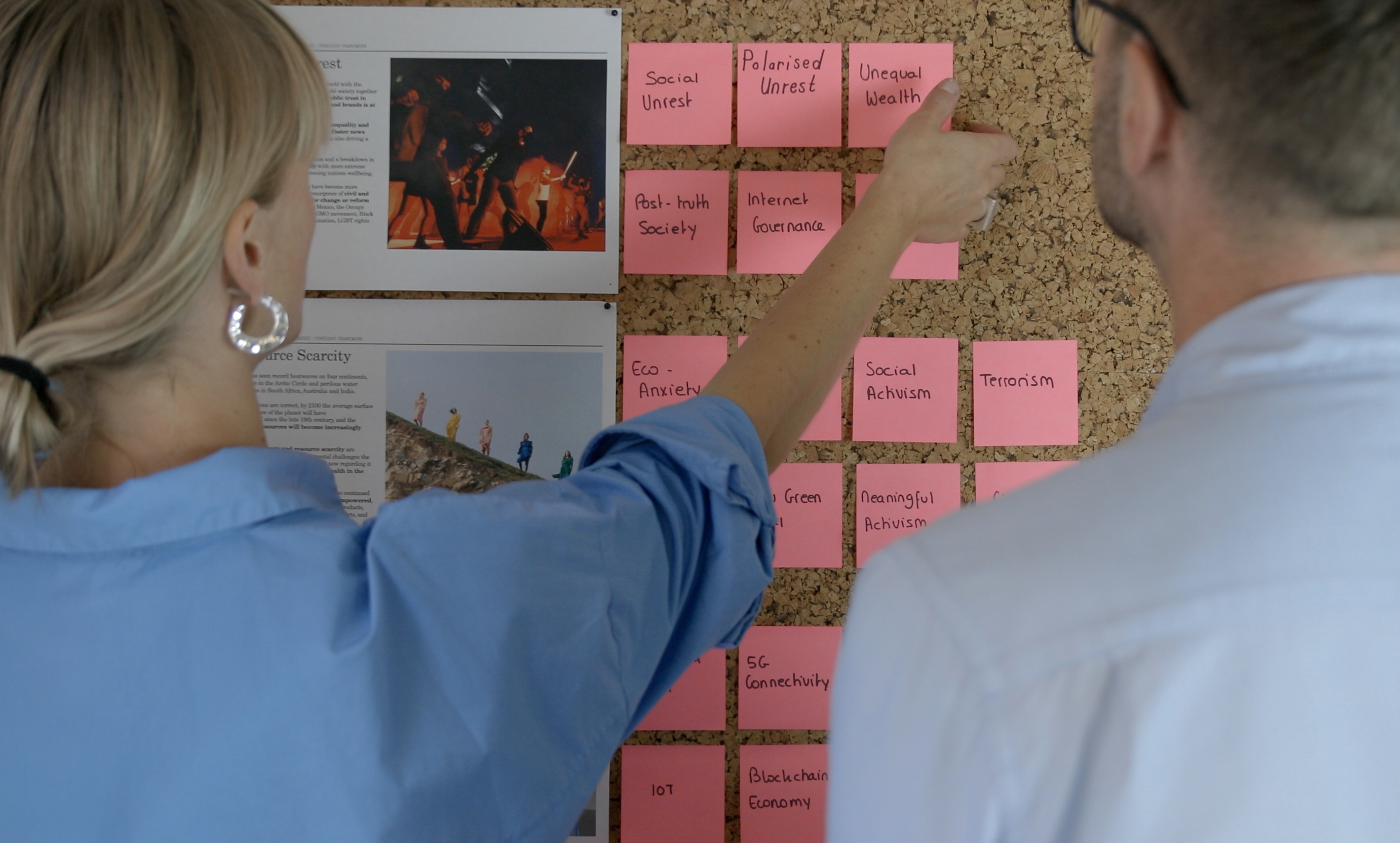03 : 11 : 23 : Weekly Debrief
This week: The first ‘premium leisure’ airline, Quantum Futures, an artificial insemination sex toy, OpenAI's valuation triples, the Sleep Enhancement Market, a refillable plastic-free prescription service, and Strategic Research Reports.
1. Beond brings private jet experience to commercial flights
Maldives – Labelled as the first ‘premium leisure’ airline, Beond aims to offer a private jet experience to a wider group of travellers. They can expect elevated fleet and service aboard flights connecting European and Asian cities to the Maldivian capital, Malé.
Start-up carrier Beond's inaugural flight, from Malé to Riyadh, Saudi Arabia, takes off on 9 November, following the unveiling of its ultra-luxury fleet in October.
The luxury airline’s first plane is an Airbus A319, but unlike conventional commercial carriers the plane has a bespoke all-business-class interior. On board, passengers can expect fine-dining options, iPads loaded with entertainment and leather seats allowing a fully flat position. Additionally, the airline will offer transit limousine and access to private airport lounges.
Beond’s strategy is to deliver affordable luxury to wealthy travellers who seek a premium flying experience without the price tag of a private jet, while profiting from the popularity of Maldives as a tourist destination.
At times when low-cost – and often low-comfort – commercial flights dominate the market, we are witnessing the rise of new industry players swimming against the current, bringing enjoyment back to air travel.
Unlocked Article
The Great Concert Comeback
Read more Quantum System One at Cleveland Clinic, IBM
Quantum System One at Cleveland Clinic, IBM
2. Quantum Futures: How Ready Are You?
According to Michael Dell, the founder and CEO of Dell, generative artificial intelligence has been on everyone's lips as if it is the destination, but it isn't.
At Dell Technologies World 2023, he suggested that AI was more or less a dress rehearsal for what was coming next: quantum computing. 'Imagine if [AI] now ran at five orders of magnitude higher performance,' he told the audience. 'And that, inevitably, is coming.'
Quantum computers are a new kind of computing technology that harnesses the principles of quantum mechanics to process information.
They use quantum bits, or qubits, which can exist in multiple states simultaneously, enabling them to solve complex issues much faster than traditional computers.
Several industries have already invested in quantum and identified its potential to speed up tasks such as optimisation, cryptography, drug discovery and materials science. For businesses, being quantum literate could lead to competitive advantages, cost savings and breakthroughs in research and development.
3. Sleep Enhancement Market
The pursuit of wellness is not confined to our waking hours. When we sleep, our body repairs and recovers, making those six–10 hours each night an important window of opportunity when it comes to health and longevity.
However, for many, a good night’s sleep often feels sorely out of reach, and an estimated 50 to 70m Americans have chronic or ongoing sleep disorders (source: National Heart, Lung and Blood Institute).
The rise of sleep conditions is thought to be influenced by several characteristics of our modern world: stressful urban lifestyles with work pressures constantly on the mind; increased consumption of alcohol and caffeine; the use of electronics before bedtime; and an ageing population (sleep-related issues are more common in older adults).
In addition to this, the pandemic saw an increase in insomnia and poor sleep quality. One study conducted in March and April 2020 found that across the 49 countries surveyed, 40% of people said their sleep was worse than before the pandemic. Google searches for insomnia also spiked in the US in April and May 2020 (source: Science Daily). ‘Many people experienced sleep problems during the pandemic due to stress, anxiety and changes in their daily routines,’ explains Chris Mosunic, clinical psychologist and chief clinical officer at Calm.
4. New sex toy doubles as an artificial insemination device
Germany – Product designer Juliane Kühr has developed a sex toy that doubles as a self-insemination device. Vruit offers an alternative to clinical insemination, transforming the act of insemination from something medicalised and sterile into a sensual and relaxed experience.
Recognising that queer and single people often experience prejudice and barriers to medically assisted reproduction and turn to self-insemination instead, Vruit ‘enables people to start families in a self-determined way and to exercise their reproductive rights’.
Due to the sensitivity of the ejaculate and the lack of specialised products, self-insemination after sperm donation must be carried out very quickly, making it hard to relax and leaving room for error. Vruit reintroduces pleasure into the insemination experience, while also providing information about the physical and legal aspects of self-insemination.
Social innovations such as Vruit are helping to address stigma in the Fertility Market and provide diverse and accessible means of conception for everyone.
 Vruit by Juliane Kühr, Netherlands
Vruit by Juliane Kühr, Netherlands
 Cabinet Health, US
Cabinet Health, US
5. Cabinet Health launches refillable and plastic-free prescription service
US – Sustainable healthcare company Cabinet Health has launched Cabinet Health Rx, a refillable mail-order prescription service. A direct-to-consumer healthcare service, it is dedicated to reducing the environmental impact of the pharmaceutical industry.
Each Cabinet Health Rx patient is provided with a refillable glass bottle and is partnered with a dedicated Cabinet Care professional. Patients are then able to order and receive mail-order refills of over 150 of the most commonly used prescription drugs. Customers will also benefit from discounted member rates and on-demand healthcare support.
According to Business Wire, after three months of beta testing, Cabinet Health Rx has a waiting list of more than 20,000 patients.
‘Patient care and environmental sustainability are inextricably linked,’ said Achal Patel, co-founder and CEO of Cabinet. ‘Cabinet Rx provides our patients with the highest-quality sourced medicines, personalised care and sustainable packaging that is better for the environment and brightens up our homes.’
Plastic-free and refillable packaging has been well established in the beauty industry, and now the same expectations are reaching pharmaceuticals. As explored in our Clean Medicine report, consumers now want clean and sustainable options for every product they bring into their homes, including medical prescriptions.
6. Stat: OpenAI triples its valuation in 2023
US – OpenAI, the developer behind groundbreaking artificial intelligence models including ChatGPT and DALL-E, is reportedly in discussions about an employee share deal that could catapult its valuation to a staggering £66bn ($80bn, €76bn). This valuation, almost triple what it was in January 2023, would position OpenAI as the third most-valuable private company globally, surpassing giants like Stripe and Shein. It would rank just behind TikTok's ByteDance and SpaceX, led by Elon Musk.
Furthermore, OpenAI would become the highest-valued company in San Francisco, where it is based, outranking tech heavyweights Meta and Google. Amid increasing anti-trust scrutiny, technology firms are seeking collaboration with start-ups rather than outright acquisitions. Amazon, for instance, recently pledged to invest £3.3bn ($4bn, €3.8bn) in San Francisco’s Anthropic, a rival to OpenAI. With Microsoft owning a 49% stake in OpenAI, this trend underlines the ongoing interest in AI-related ventures, even in a year when global start-up funding has seen a downturn.
7. Strategic Research Reports
Want to make more informed business decisions in the short and mid-term? Don't want to miss out on the growth opportunities set to shape your sector over the next 1-3 years?
At The Future Laboratory, we offer Strategic Research Reports to help plug important knowledge gaps across a sector, consumer group or market you’re hoping to engage. In working with us we can create bespoke reports that strengthen your business planning with breakdowns of potential opportunities and challenges.
If you're looking to make more informed business decisions in the short and mid-term, please get in touch here to see how we can work together to create a bespoke report that gives you that competitive edge in 2024 and beyond.

Want to read more?
Become a member today!
Sign up to one of our trends intelligence platform, LS:N Global and get unlimited access to a hive of insights - from microtrends and macro trends to market reports, daily news, research across eight industry sectors and much more.
Discover our memberships
Already a member? Click here to login
